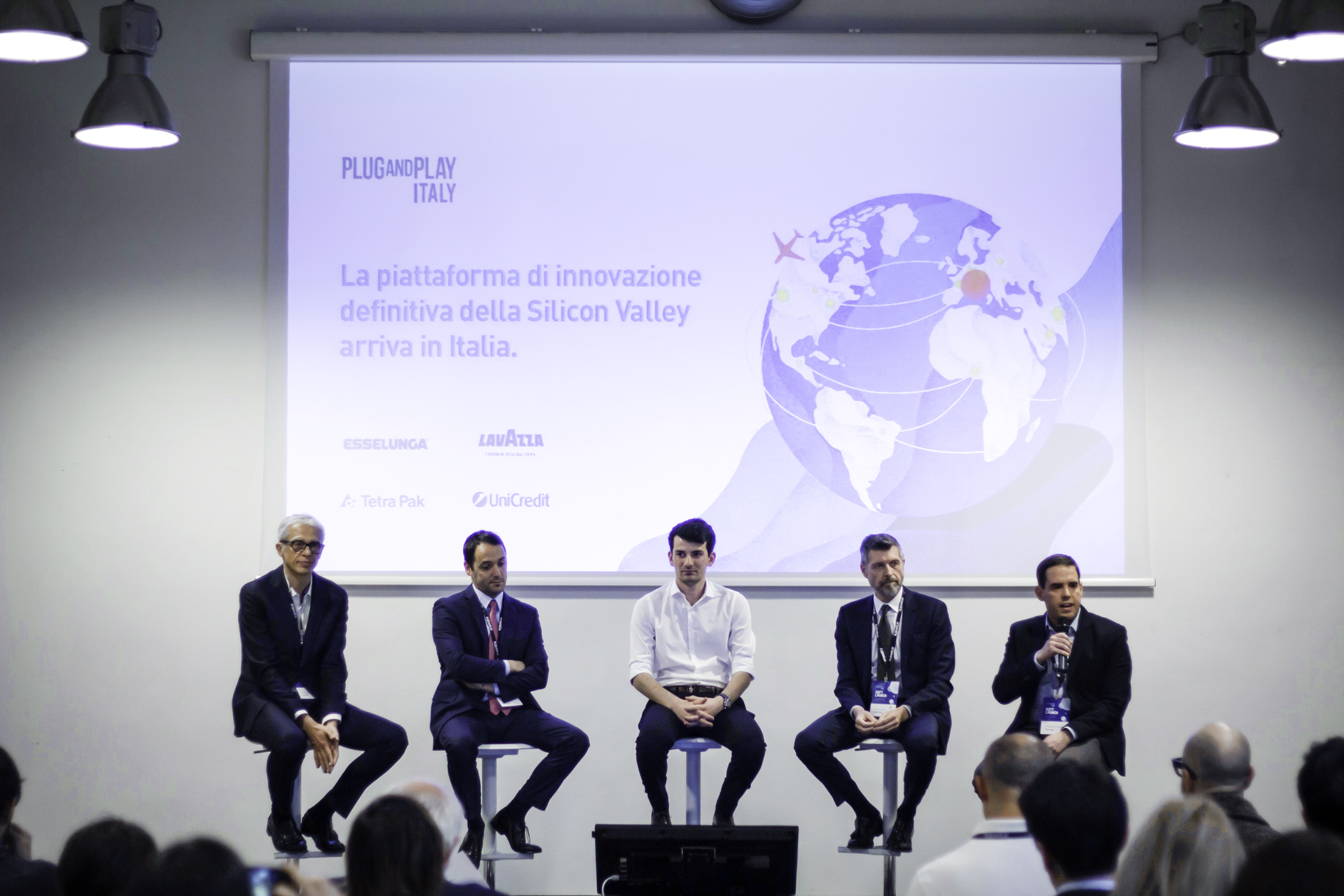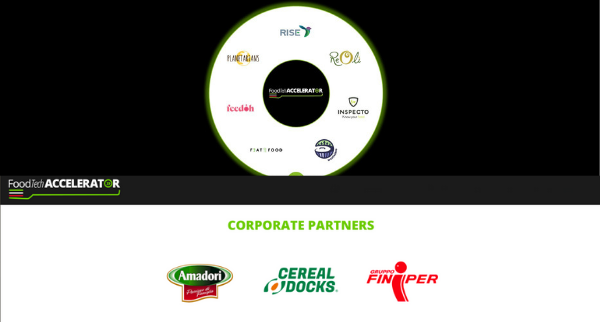THE ITALIAN 2019: LEONARDO DA VINCI AND OPEN INNOVATION IN FOOD, COINCIDENCE?
We, Italians, have to get rid of this inferiority complex (Enrico Mattei)
15th April: Plug & Play lands in Italy with the soft launch in Milan of its open innovation program focused on food & beverage. Four months earlier, still in Milan, Deloitte launched its Foodtech Accelerator, widely explained in my last article. Still in January, but in the “Italian Food Valley”, precisely in Bologna, we watched the launch of Agrofood BIC (Business Innovation Center). Obviously, we don’t have to forget the Startupbootcamp Foodtech of Rome, already active for some years.
Different programs, different companies, and different partners but one lowest common denominator: the open innovation in the food industry through startup acceleration.
But why open innovation and not closed innovation?

“OPEN” VS “CLOSED” INNOVATION: THE PARADIGMS OF HENRY CHESBROUGH
An exhaustive reply might be obtained in reading the book “Open innovation: the new imperative for creating and profiting from technology”, published in 2003 by Henry Chesbrough “an adjunct professor and the faculty director of the Garwood Center for Corporate Innovation at the Haas School of Business at the University of California, Berkeley” (source: Wikipedia).
In this book, the professor coined the term “Open Innovation”, analyzing the root cause of “Xerox and its PARC (Xerox’s Palo Alto Research Center) problem.”
Despite having hired the best world researchers in the field, who conceived and launched some of the greatest innovative technologies in the history of the personal computer, such as the GUI, the Ethernet protocol and PostScript, the PARC was not performing as expected.
By an absurd paradigma, Xerox, and PARC became really profitable when letting the researchers leave the company to found some “Spin-off Startup”: Xerox allowed this startup to use some of its proprietary technologies granting a license, trading it with some equity stake. Some of these startups experienced great success, such as 3COM (went public in 1984 and acquired by HP in 2010) and Adobe Inc.
Analyzing deeply and tracking the root cause of this situation, professor Chesbrough enunciated the “Closed Innovation” and “Open Innovation” paradigms: the innovation can’t and don’t have to stay “closed” within the 4 company walls, but it must be “open” to external resources, such as startups, universities, associations, and so on.
As per what stated above, we can consider professor Chesbrough as the “Spiritual Father” of open innovation.
THE ITALIAN INNOVATION CAME FROM THE PAST
Back to Italian open innovation in food, the fact that this year is even the 500th anniversary of Leonardo Da Vinci is maybe not completely coincidental, or don’t?
During the event of Plug & Play, the managing director of Italy, Andrea Zorzetto, brought virtually on stage 3 shining Italian innovator of the past: Leonardo da Vinci, precisely, Adriano Olivetti, and Enrico Mattei, the author of quote at the top.
The latter spent all his life committed to make Italy a great, innovative place fighting the big oil corporations, and paid sadly that dream with his own life dying in a mysterious accident.
Mr. Olivetti was the first and probably the only entrepreneur in history able to merge capitalism with communism, creating an industrial model where it coexisted profit and social equality.
Nowadays, beyond any doubt is the food, along with fashion and design obviously that makes Italy great. The Belpaese, abroad, is frequently a synonym of good food and this great agrifood heritage deserves and needs a great open innovation ecosystem. Having just the best food of the world isn’t enough any more, the Made in Italy leadership must be extended to any field of food industry, included the digital innovation
The big companies, the SMEs, and the retailers are finally realizing the only way to grow is through open innovation. The innovation is something moving at lightning speed. Every day there’s a new startup raising with the aim to solve a problem, improve a process or promote a brand new product; in an open innovation environment the advantages are mutual, the companies can have quick access to all innovative process and/or products, the startup can boost the project, and reduce the time to market having at disposal some great financial and human resources.
Regarding the Italian food industry, the 2019 can be considered as the year zero for open innovation, with the 3 brand new programs launched, which flank along StartupBootCamp.
The 4 aforementioned projects of open innovation in food surely will allow the Italian agri-food industry to reach the top, in a country where the venture capital market is still not well developed and the VC specialized in agrifood are a chimera (5 Seasons might be considered as the exception that proves the rule).
THE PROGRAMS
Startupbootcamp Foodtech in Rome, managed by Peter Krueger, will launch this year its 4th acceleration program. Through the support of important partners, such as Danone, Olio Monini, Gambero Rosso, and a team of mentors of different background. In these 4 years, the accelerator hosted some interesting and challenging startup, such as Evja (agritech), Eco-Pack (biomaterials), and HotBox Food (delivery). Will we see some of these startups in the Silicon Valley one day? I strongly hope so.
As you surely know, that area in the Southern San Francisco Bay is a land populated by unicorns and geeks but, in Italy, we have the “Food Valley” populated by hogs and cheesemakers, located in Emilia (Romagna) between Parma and Bologna. And precisely in Bologna, the Italian capital of gastronomy, on 31st January it has been launched the Agrofood Bic, the startup acceleration program hosted by among the others, Granarolo, Conserve Italia, Cuniola Societa Agricola, Gruppo Camst and Eurovo, besides the University of Bologna and Gellify. The latter can grant undoubtedly excellent result thanks to the wise management of Lucia Chierchia, one of the Italian open innovation pioneers. The program will select the most promising startup in 5 thematic areas, granting them spaces, mentorship, and network.
It will rely on 4 italian young italians returning from years spent working and studying abroad and the partnership of 4 heavy hitters such as Lavazza, Esselunga, TetraPak, and Unicredit, the Italian program of Plug & Play.

The best open innovation platform of the world has chosen obviously the food & beverage vertical for its Italian accelerator. The international startup sourcing will take place in June and July, preparatory for the selection Day 1 in September.

Cereal Docks, Amadori, FinIper, and Aperol are the industrial partners of Foodtech Accelerator powered by Deloitte, widely described in this article, which started the activities in August 2018 before the official launch taken place in January. I have been personally part of this program as a mentor, being literally fascinated by the skills and enthusiasm of Deloitte guys and the partners. The accelerator selected 7 startups in as many fields, from alternative proteins to waste management, which will be showed to the world during the demo day at Seeds&Chips the next 7th May.
Obviously, you are all invited in taking part to Seeds&Chips, the global food innovation summit that will host for 4 days the best, the most reliable and important politicians, influencers, Ceo’s, executives, startup keen on innovation and sustainability.
If you liked this article and you are enthusiastic about this opportunity for Italy, feel free to share it with your network.

